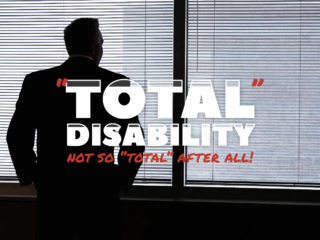Full Decision
$150,000 PUNITIVE DAMAGES AWARD IS NOT UNREASONABLE THOUGH THE EMPLOYEE CONTRIBUTED SIGNIFICANTLY TO HIS OWN INJURY
In Eynon v. Simplicity Air Ltd, the Court of Appeal addressed a significant punitive damage award in a case where the plaintiff contributed considerably to the incident that caused his injury.
The plaintiff was injured in his workplace. After being challenged by a colleague, he climbed a 14-foot chain hoist and caught the crotch of his pants on a hook that pierced his scrotum necessitating surgical repair.
The jury awarded the plaintiff $75,000 for general damages plus damages for lost wages, which was reduced by 75% for the plaintiff’s contributory negligence. The jury also awarded punitive damages against the employer in the amount of $150,000 with no reduction for the plaintiff’s careless conduct.
According to the plaintiff, he was screaming in pain right after he hurt himself, but his supervisor, Gary, laughed at him and refused to look at the injury. The same supervisor initially refused to call him an ambulance and a second supervisor, Doug, instead wanted to arrange for someone to drive the plaintiff home. However, the plaintiff later refused to be driven home after calling his father who told his son to insist on going to the hospital. Before leaving for the hospital, Doug told the plaintiff to say that the injury happened at home. Gary drove the plaintiff to the hospital but did not help him inside. He merely dropped the plaintiff off.
The plaintiff testified that he received no safety training and no Workplace Hazardous Materials Information System (WHMIS) training from his employer. His employer assigned him to drive a forklift without proper certification and regularly failed to properly train him for the dangerous tasks given to him. He was never trained to use the chain hoist and there was no supervisor on the floor at the time he climbed it.
There were five issues the Court of Appeal had to address:
- Was the issue of punitive damages properly explained to the jury?
- Should the trial judge have provided guidance to the jury on the appropriate range for punitive damages?
- Is an employer liable for punitive damages resulting from an employee’s conduct?
- Was the punitive damage award too high?
- Should the punitive damages award be reduced because of the plaintiff’s contributory negligence?
The court’s ruling on these issues was as follows.
1. Was the issue of punitive damages properly explained to the jury?
Punitive damages are reserved for high-handed, malicious, arbitrary, or highly reprehensible misconduct that markedly departs from the ordinary standards of decency. The purpose of the award is to deter similar misconduct in the future. The trial judge properly explained this to the jury.
Further, there was sufficient evidence for a properly instructed jury, acting reasonably, to award punitive damages. The supervisor’s instructions to falsely report that the injury happened at home in and of itself warranted the award. Those instructions contravened the Workplace Safety and Insurance Act.
2. Should the trial judge have provided guidance to the jury on an appropriate range for an award of punitive damages?
No. A range should only be left if counsel agrees upon the range. There was no such agreement.
3. Is an employer liable for punitive damages resulting from an employee’s conduct?
The employer was the only named defendant. The offending conduct of two supervisors occurred in the course of their employment. Those supervisors had been left in charge of the workplace at the material time for the employer. Unquestionably, their conduct was the conduct of the employer. Further, the offending conduct occurred in a company culture that failed to place importance on best safety practices.
This case was therefore distinguishable from Boucher v. Wal-Mart Canada Corp. where an employee was sued along with the employer and where the employee committed an independently actionable wrong (intentional infliction of mental suffering) for which he was personally punished with a punitive damages award. In that case, the employer still paid punitive damages for its own offending conduct (wrongful dismissal and breach of the duty of good faith). But the employer was not to pay punitive damages solely on the basis of its vicarious liability for the employee’s own actionable wrong.1
4. Was the punitive damage award too high?
No. Appellate courts may only intervene where the award, when added to the compensatory damages, is so inordinately large that it exceeds what is rationally required to punish the defendant. The defendant had not been penalized in any other forum to warrant a reduced award. The award was not inordinately high. The instructions to falsely report the accident alone warranted $150,000 in punitive damages.
5. Should the punitive damages be reduced because of the plaintiff’s contributory negligence?
No. When it came to punitive damages, the trial judge instructed the jury to consider the supervisors’ conduct after the incident and not before. The plaintiff’s conduct was not part of the determination of whether punitive damages were warranted. There was no basis to reduce the award for contributory negligence.
This seems to suggest that, had the jury taken into account the defendant’s behaviour before the incident, then the punitive damages could be reduced in accordance with the plaintiff’s contributory negligence.
My own thoughts on this potential issue are as follows. Even if the jury took into account what led to the incident, there should still be no reduction because of the plaintiff’s careless behaviour. The very purpose of punitive damages is to punish the defendant for the defendant’s own reprehensible conduct. The focus is always on what the defendant alone did or did not do that is highly offensive, and nothing else. Any carelessness by the plaintiff is irrelevant to the determination.
- The Walmart employee belittled, humiliated, demeaned and verbally abused the plaintiff in front of other employees after the plaintiff refused to falsify a temperature log. The plaintiff suffered psychologically as a result and sued that employee individually for intentional infliction of mental suffering. The plaintiff also claimed breach of contract against the employer, Walmart, for constructive dismissal. To be awarded punitive damages, the plaintiff had to establish Walmart committed an actionable wrong independent of the breach of contract (breach of duty of good faith in the manner of the dismissal). Also, the reprehensible conduct had to be specifically referrable to the employer. An award of punitive damages against an employer could not be grounded solely on vicarious liability of an employee’s wrong. It seems that there was too much of a separation between the intentional inflection of mental suffering and the wrongful dismissal.














